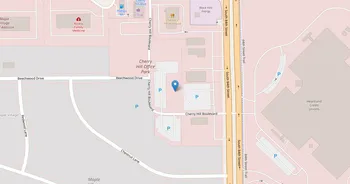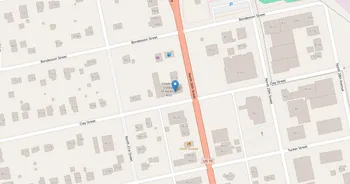Little Priest Tribal College (LPTC) : Overview, Courses, Scholarships & Rankings
About Little Priest Tribal College
Named for Chief Little Priest, this tribal college in Winnebago is known for learning grounded in Native values and community. And students build a solid base in liberal arts, human services, business, and STEM basics, tying classwork to real life. Campus resources stay personal: classrooms and computer labs, a friendly library, tutoring, advising, and cultural spaces where language and tradition matter.
Student life leans into culture, service, and the outdoors. Expect clubs, arts, community gatherings, and room for pickup games and fresh air. The vibe is calm and purpose-driven, with elders and neighbors often involved. Career prep is practical through internships and projects with tribal departments and regional partners, plus career coaching. The surrounding community offers real chances to give back.
Key Institutional Details
Contact & Profile
Academic & Institutional
Academic Programs & Fields of Study
Little Priest Tribal College (LPTC) offers 8 degree programs across 8 major academic fields, graduating approximately 29 students annually. The most popular fields by graduate volume are Health (1 programs, 15 graduates), Liberal Arts (1 programs, 6 graduates), Natural Resources (1 programs, 2 graduates), Law (1 programs, 2 graduates) and Cultural Studies (1 programs, 1 graduates). Explore program details, award levels, and graduate demographics below.
Health (1 programs, 15 graduates)
Healthcare Professions, Medical Sciences and Clinical Practice
| Program Name | Graduates | Gender Distribution | Award Levels | CIP Code |
|---|---|---|---|---|
| Nursing and Patient Care Assistant | 15 |
|
Residency
|
51.3902 |
Liberal Arts (1 programs, 6 graduates)
Liberal Arts Education, General Studies and Humanities
| Program Name | Graduates | Gender Distribution | Award Levels | CIP Code |
|---|---|---|---|---|
| Liberal Arts and Sciences | 6 |
|
Associate's
|
24.0101 |
Natural Resources (1 programs, 2 graduates)
Environmental Science and Natural Resource Management
| Program Name | Graduates | Gender Distribution | Award Levels | CIP Code |
|---|---|---|---|---|
| Environmental Studies | 2 |
|
Associate's
|
03.0103 |
Law (1 programs, 2 graduates)
Legal Studies, Jurisprudence and Professional Law Practice
| Program Name | Graduates | Gender Distribution | Award Levels | CIP Code |
|---|---|---|---|---|
| Legal Research and Professional Studies | 2 |
|
Associate's
|
22.0299 |
Cultural Studies (1 programs, 1 graduates)
Cultural Anthropology, Ethnic Studies and Social Group Research
| Program Name | Graduates | Gender Distribution | Award Levels | CIP Code |
|---|---|---|---|---|
| American Indian and Native American Studies | 1 |
|
Associate's
|
05.0202 |
Computer & IT (1 programs, 1 graduates)
Computer Science, Information Technology and Cybersecurity
| Program Name | Graduates | Gender Distribution | Award Levels | CIP Code |
|---|---|---|---|---|
| Computer and Information Sciences | 1 |
|
Associate's
|
11.0101 |
Education (1 programs, 1 graduates)
Educational Sciences, Teaching Methods and Pedagogy
| Program Name | Graduates | Gender Distribution | Award Levels | CIP Code |
|---|---|---|---|---|
| Kindergarten and Preschool Education | 1 |
|
Associate's
|
13.1209 |
Business (1 programs, 1 graduates)
Business Administration, Marketing and Entrepreneurship
| Program Name | Graduates | Gender Distribution | Award Levels | CIP Code |
|---|---|---|---|---|
| Business Administration | 1 |
|
Associate's
|
52.0101 |
Tuition, Fees & Estimated Costs
Overview of tuition rates, housing, and other annual education expenses for undergraduate and graduate students
Financial Aid & Student Support
Summary of scholarships, grants, student loans, and financial aid statistics for undergraduate students
Student Success Metrics
Graduation rates and post-graduation earnings to help assess student outcomes and long-term value of education.
Loan Burden & Repayment Outcomes
Breakdown of loan repayment rates and student debt levels by income and dependency status.
Frequently Asked Questions
Find answers to the most common questions about Little Priest Tribal College (LPTC)
How much does it cost to attend Little Priest Tribal College (LPTC)?
The annual tuition at Little Priest Tribal College (LPTC) is $5,400 for in-state students. When including room and board, books, and other expenses, the total estimated cost is approximately $17,634 for in-state students. Additional costs include room and board $8,000 and books and supplies $1,000.
Data based on IPEDS program completions for 2022-2023 academic year. Tuition and cost estimates are approximate and may not include all fees, personal expenses, or transportation costs.
What academic programs and degree levels does Little Priest Tribal College offer?
Little Priest Tribal College (LPTC) offers 8 academic programs across 8 major fields of study, with available degree levels: Associate's, Residency.
Most popular program areas include:
- Healthcare Professions, Medical Sciences and Clinical Practice (1 programs)
- Liberal Arts Education, General Studies and Humanities (1 programs)
- Environmental Science and Natural Resource Management (1 programs)
- Legal Studies, Jurisprudence and Professional Law Practice (1 programs)
- Cultural Anthropology, Ethnic Studies and Social Group Research (1 programs)
Data based on IPEDS program completions for 2023-2024 academic year. Numbers reflect programs where students graduated, not all offered programs.
What financial aid and scholarships are available at Little Priest Tribal College?
Little Priest Tribal College (LPTC) provides financial aid to 10% of first-time, full-time students, with average grants of $3,006 and average loans of $0.
Average financial aid amounts by type:
- Pell grants: $2,993
- State/Local grants: $231
The university supports 18 students with grants and 0 students with loans annually.
Data based on IPEDS for 2022-2023 academic year. Financial aid amounts and percentages may vary by program, enrollment status, and individual circumstances.
What is the average salary for Little Priest Tribal College graduates?
Little Priest Tribal College (LPTC) graduates earn a median salary of $25,225 after 6 years.
Data based on IPEDS for 2022-2023 academic year. Salary data reflects graduates who received federal financial aid (approximately 60% of all graduates). Actual earnings may vary significantly based on program, location, and individual circumstances.
Related Universities




Found something useful? Help others discover it too! Share with friends, on social media, or save for later - every share helps someone find the information they need.